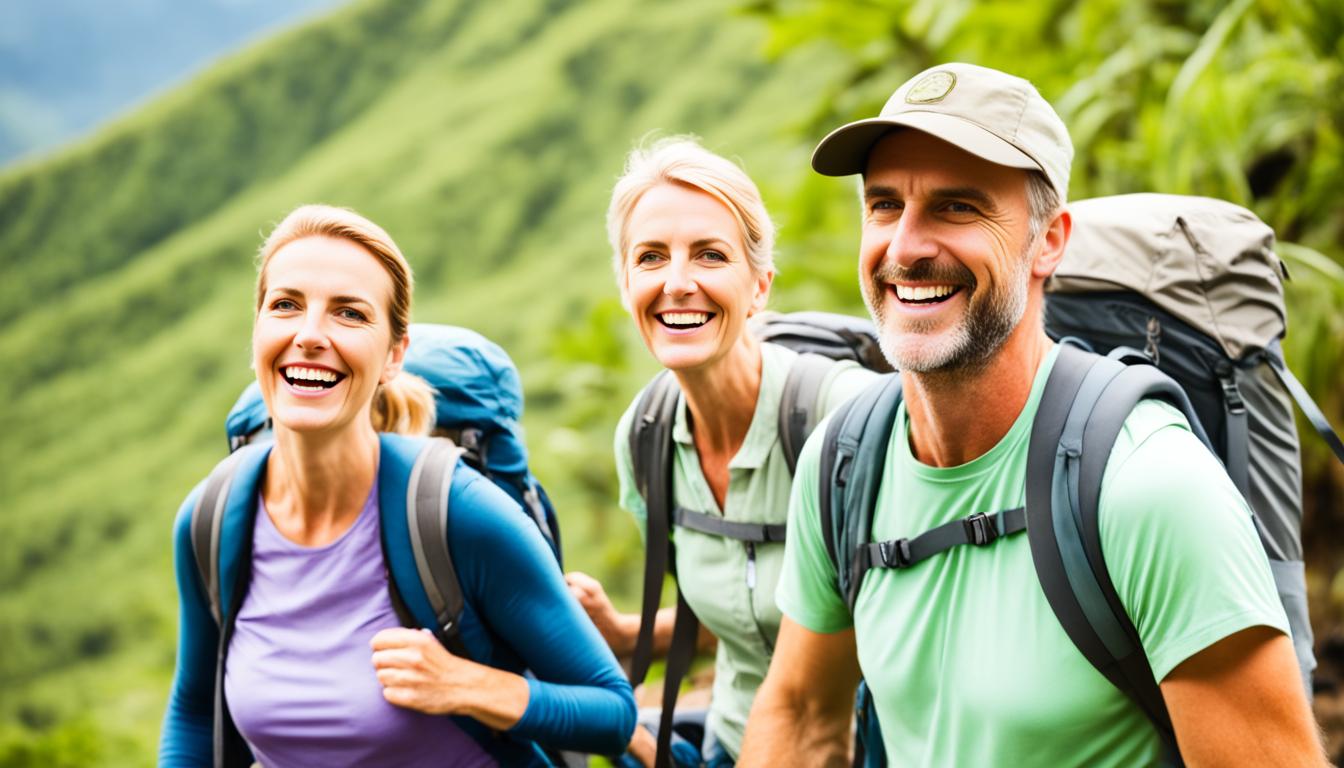Believe it or not, Tanzania has a lower crime rate than other East African nations. It scores just 38.6 out of 100 on the Global Peace Index. Still, visitors must be careful and learn about the country’s laws and customs. This ensures they have a safe and fun trip. For example, be aware that drug offenses lead to severe penalties. Also, there are rules about taking photos. Knowing the legal scene is key for anyone visiting Tanzania.
Tanzania’s tourism security and political stability have been quite steady. However, travelers should check any health risks and travel advisories from their home countries. Being ready to use emergency services if needed is wise.
Key Takeaways
- Tanzania has a relatively low crime rate, but visitors must still exercise caution and familiarize themselves with the country’s unique laws and cultural norms.
- Severe penalties exist for drug offenses, and certain photography restrictions are in place.
- Travelers should be aware of potential health risks and travel advisories issued by their home countries.
- Navigating Tanzania’s emergency services may be necessary in the event of an unforeseen incident.
- Understanding the legal and cultural landscape is crucial for a safe and enjoyable trip to Tanzania.
Understanding Tanzania’s Law and Criminal Penalties
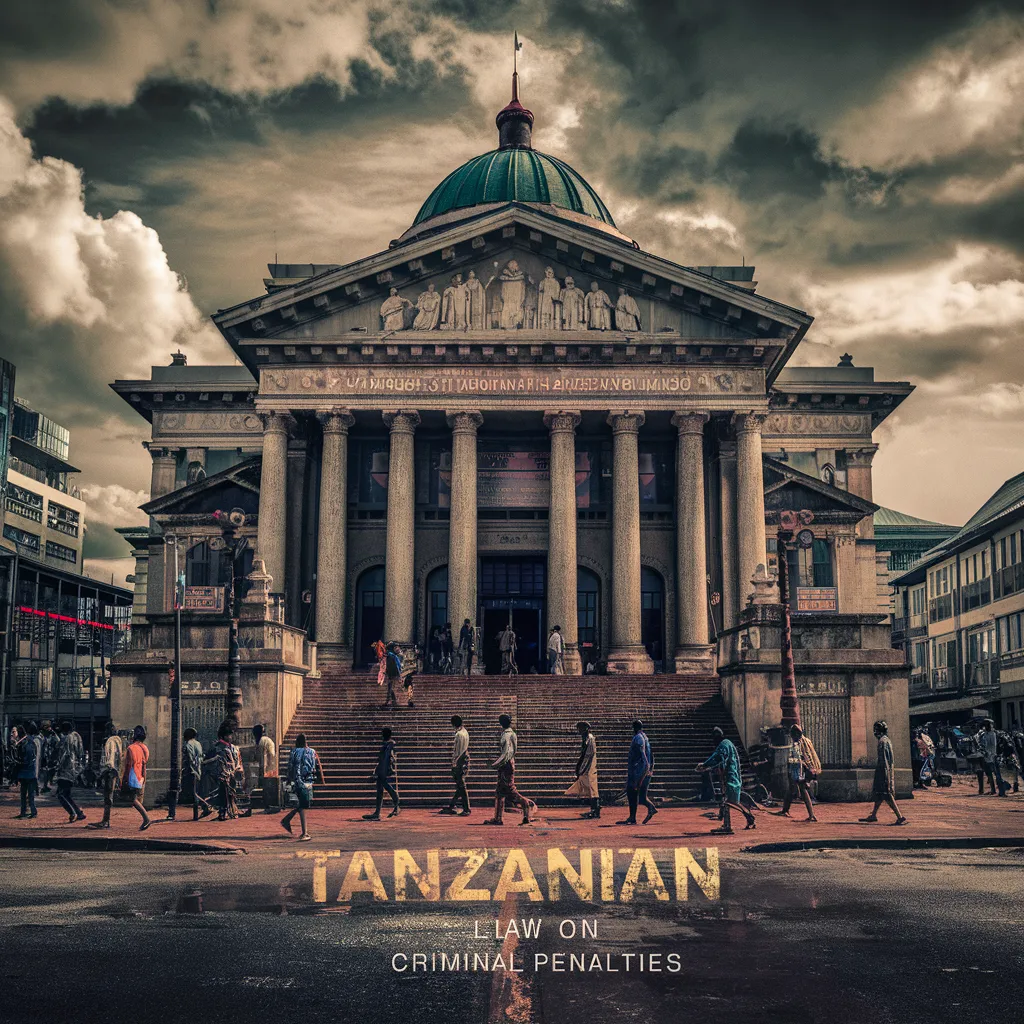
Visiting Tanzania means following their laws. Even if it’s not a crime in your home country, you could still get into trouble if you break their rules. This could lead to serious outcomes like being kicked out, getting arrested, or even going to prison.
Severe Penalties for Drug Offenses
Tanzania is very strict when it comes to drugs. If you’re caught with them, selling them, or using them, you could be in for a tough time. The punishments include spending a long time in jail and paying huge fines. So, steer clear of drugs to avoid these severe penalties.
Restrictions on Photography
Tanzania prohibits taking pictures of certain places. This includes military spots, healthcare places, learning centers, roads, factories, and flying sites. If caught snapping shots of these forbidden areas, you might lose your camera and get detained. So, watch what you’re photographing to stay out of trouble.
Illegal Import/Export of Flora and Fauna
Bringing in or taking out animals or their parts from Tanzania is against the law. The same goes for picking plants or taking home certain items like seashells or special types of wood. Before you think of keeping any souvenirs, make sure you have the right papers. This is to avoid problems with the law.
Modesty and Cultural Awareness When Visiting
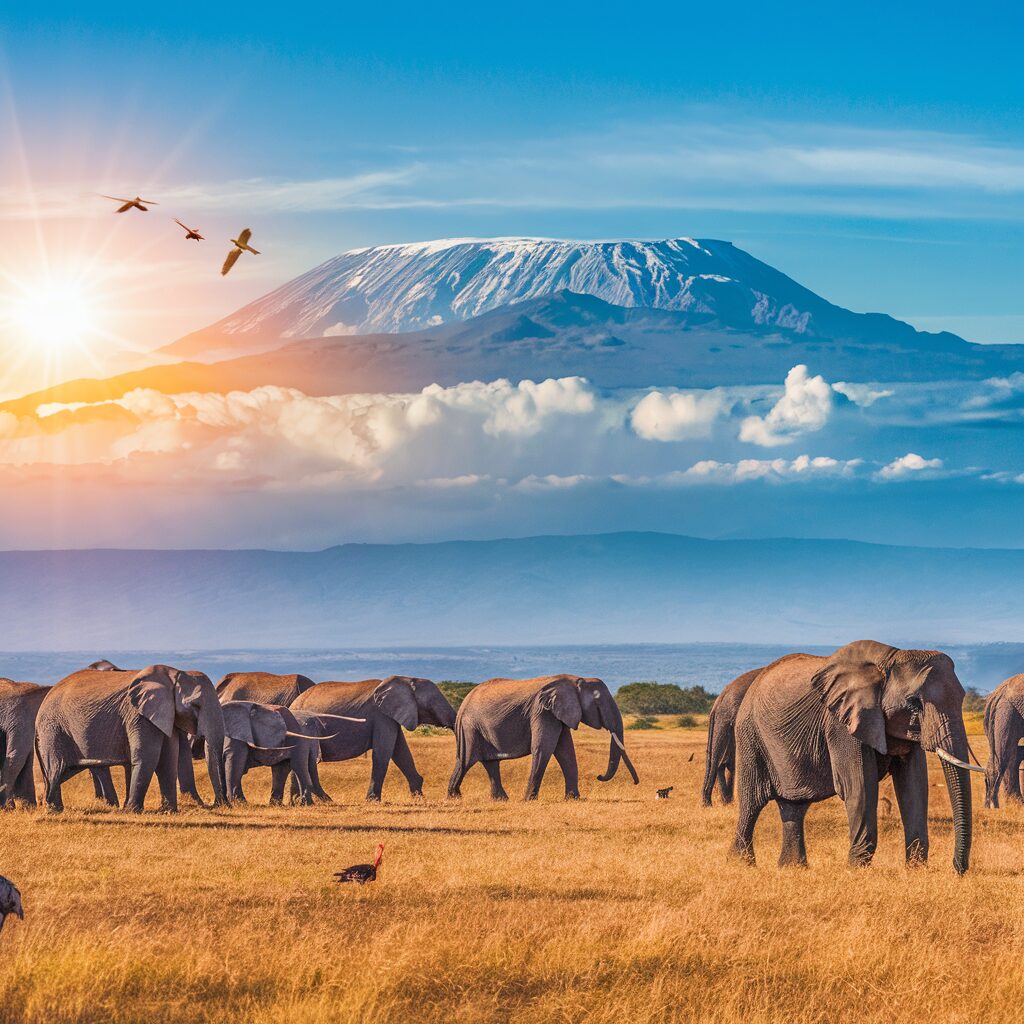
When you visit Tanzania, how you dress matters a lot. Make sure to wear modest clothes if you’re leaving your hotel. Wearing a bathing suit in public might not be a good idea. This is because the local people see it as disrespectful. Tanzania’s dress code says to dress modestly, especially outside tourist areas.
Dress Code and Public Attire
In Tanzania, choose clothes that cover your knees and shoulders. Wear loose-fitting clothes that are not too tight or revealing. This is important because it shows respect for Tanzania’s religious customs and their way of life. By dressing this way, you won’t stand out in a bad way.
Respecting Ramadan
During Ramadan, Muslims fast from sunrise to sunset. If you’re not fasting, don’t eat, drink, or smoke in public. This is seen as disrespectful. Also, try to dress in a way that’s not too flashy. Be quiet and calm so you don’t disturb those who are fasting.
Faith-Based Travel Considerations
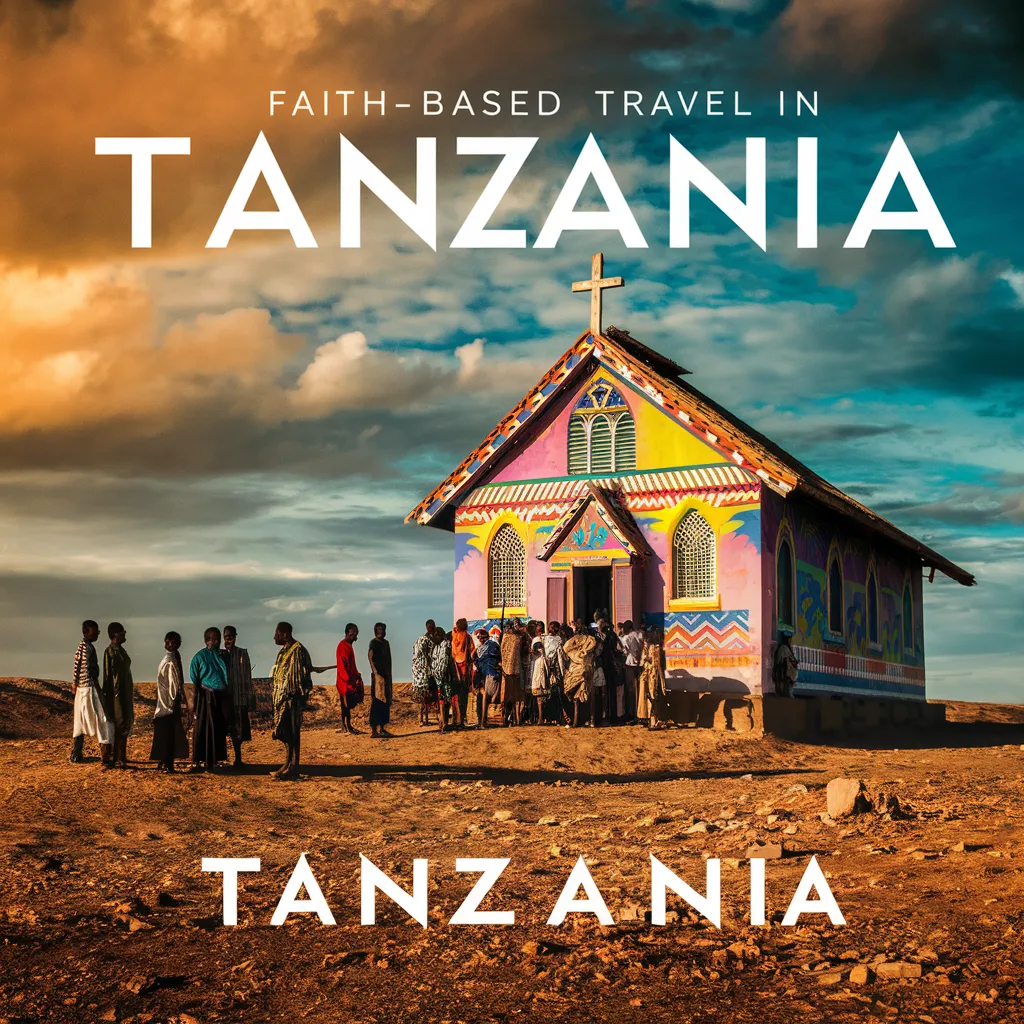
If your trip is faith-based, learn about Tanzania’s religious rules. The U.S. State Department website has lots of helpful info. This includes tips for travelers of all faiths. Being respectful of local religious customs makes your trip better.
Is Tanzania Safe To Visit? LGBTQI+ Travel Safety
When you travel to Tanzania, it’s important to know a few things about LGBTQI+ rights. This country sees consensual same-sex relations as illegal. People found guilty may go to prison for up to 30 years. The government often unfairly targets those who seem different in terms of their sexuality or gender identity.
Legal Status and Discrimination
If you belong to the LGBTQI+ community, your visit to Tanzania might include some hurdles. You might get stopped at the border, or once inside, face unfair treatment or even false accusations. Also, the Tanzanian government does not accept passports with an “X” gender marker, used by non-binary or gender non-conforming individuals.
Entry Requirements and Gender Markers
For LGBTQI+ travelers, doing your homework on Tanzania’s rules is wise. Being aware and taking precautions for your safety is key to a great trip to this part of East Africa.
Accessibility Challenges and Infrastructure
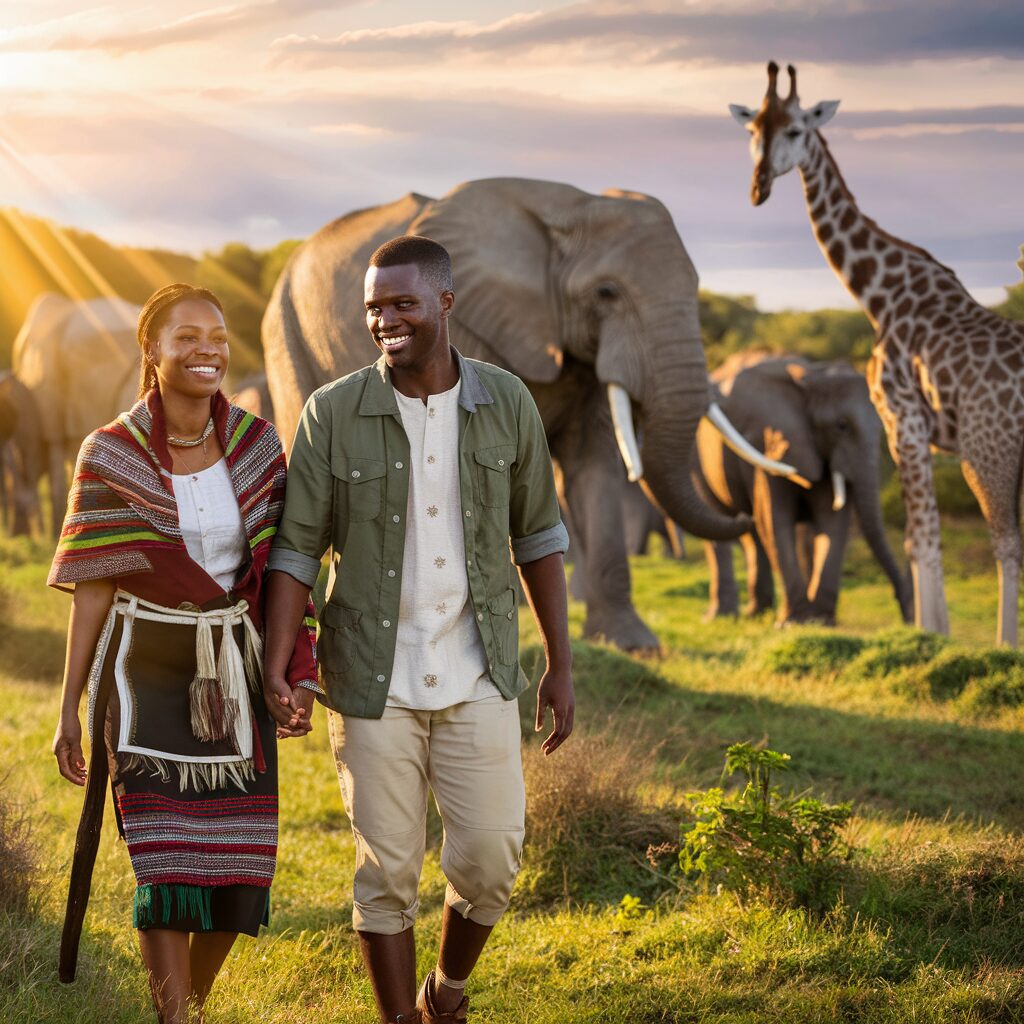
Travelers in Tanzania might face big hurdles with accessibility and infrastructure. Finding an accessible place to stay is tough. Many places to stay don’t have what’s needed for people with disabilities or who can’t move easily.
You can also read: Is Maldives safe to travel?
Accommodation and Sidewalk Accessibility
Moving around Tanzania’s cities and rural spots is hard. The country’s setup often lacks what’s needed for easy access. Without sidewalks in many areas, it’s tough for disabled people to get around. This affects their travel joy and can be a big hassle.
Power Outages
There are often power cuts in Tanzania. These cuts can mess up essential services. It’s really troublesome for those who use medical devices or rely on power for help.
The issues with accessibility and infrastructure in Tanzania are major. They can really stand in the way of a good trip, especially for those with special needs. Planning ahead and doing research is key. It helps make sure the trip is safe and fun, and it can highlight what extra help might be needed.
Safaris and Game Drives: What to Expect
Travelers in Tanzania will have a memorable time on safaris or game drives. Moving between places like the Migration Camp in Serengeti National Park feels like a game drive. The chances of seeing all kinds of wildlife are high. They will get to see Tanzania’s stunning views and amazing animals up close.
Transit Times and Animal Spotting
Driving through the Serengeti is its own adventure. You might see elephants, giraffes, leopards, and lions up close. It’s a unique experience, showing off Tanzania’s rich wildlife.
Packing and Lodging During Safaris
When preparing for a Tanzania safari, pack light and be ready to move. The journey is more comfortable this way. Many lodges offer laundry services. This means you can wear fresh clothes even after the dusty game drives.
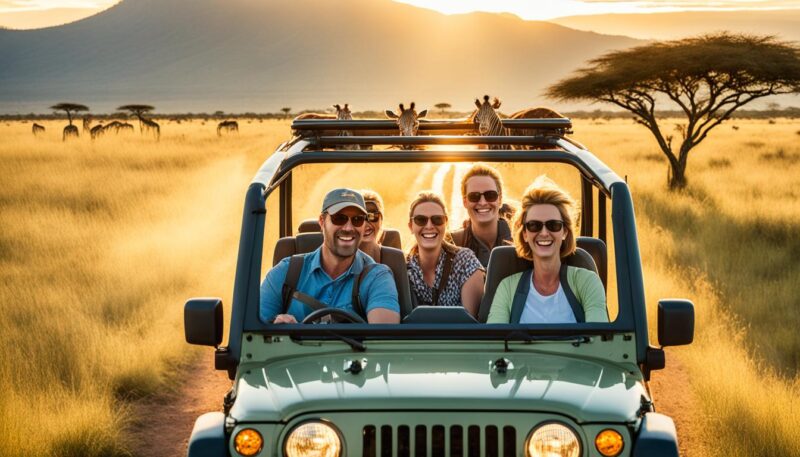
Road Conditions and Travel Times
When planning a trip to Tanzania’s national parks, road conditions matter. Travel times vary a lot. Be ready for longer drives and possible delays.
Driving Between National Parks
In Tanzania, the time it takes to drive from one park to another can surprise you. Travel from Tarangire to Serengeti takes about 2.5 hours, covering 101.7 miles. But going from Serengeti to Ngorongoro takes almost 4 hours, over 152 miles.
Sample Itinerary and Drive Times
Visit Tanzania’s parks with the knowledge that drives can be longer than expected. This is due to the changing road conditions and the chance to see wildlife on the way. A tour operator’s plan shows just how much drive times can differ.
| Destination | Distance | Drive Time |
|---|---|---|
| Tarangire National Park to Serengeti National Park | 101.7 miles | 2.5 hours |
| Serengeti National Park to Ngorongoro Conservation Area | 152 miles | 4 hours |
| Ngorongoro Conservation Area to Arusha | 113 miles | 3.5 hours |
Knowing these times helps you plan better. Enjoy your visit through Tanzania’s breathtaking parks without rush.
Visitor Perspectives: Is Tanzania Safe for Tourists?
When it comes to Tanzania’s safety, travelers share various views. Some worry about strict laws, discrimination against LGBTQI+ people, and the struggles to get around. Yet, others talk about their great times and give useful advice to future visitors.
Potential Dangers and Worst-Case Scenarios
Tanzania, by and large, is seen as safe for tourists. But there are a few things you should know. The country’s tough laws, especially about drugs and what you can photograph, can make some people nervous.
Many in the LGBTQI+ community feel the country is not welcoming. They’ve shared stories about facing discrimination and even harassment. Also, getting around can be hard because there aren’t always sidewalks and power cuts happen often. This might make things tricky for some.
Travelers’ Experiences and Advice
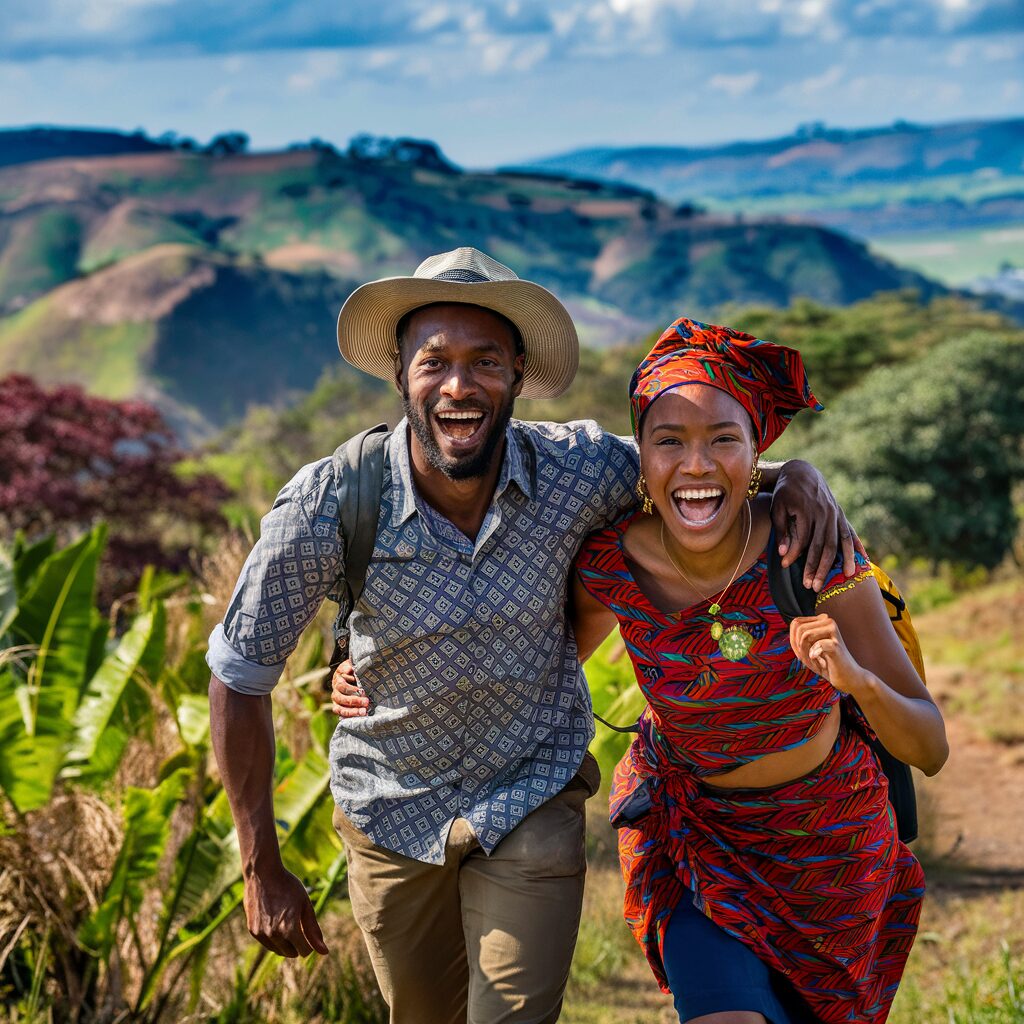
They say doing your homework, respecting the local culture, and careful planning are key. It’s important to know the laws and cultural norms, watch how you dress and act, and make sure your travel and stay are secure.
Considering this, many find Tanzania an amazing place to visit. It has so much to offer, given you are open-minded, show respect, and know how to face any issues you might encounter.
Conclusion
Tanzania is a special place to visit. But, it’s important to know about its laws, cultural rules, and challenges. By being aware of Tanzania travel safety and taking care, visitors can have a great time in this Tanzania tourism heaven in Africa.
Important Tanzania travel tips include dressing modestly and respecting its religious rules. Also, be careful with photos and avoid drugs due to strict laws. Despite these, Tanzania’s beauty, wildlife, and friendly people make it an amazing spot. With some planning and being alert, you can fully enjoy what Tanzania offers.
Overall, Tanzania is perfect for adventure, culture, and enjoying nature’s beauty. Focus on being safe and respectful to fully experience its wonders. This way, your trip will be both transformative and memorable.
FAQ
What are the laws and criminal penalties I should be aware of when visiting Tanzania?
Breaking Tanzania’s laws can lead to deportation, arrests, or jail time. Using or selling drugs can get you long prison sentences and big fines. It’s against the law to take photos of military sites, hospitals, and some other places. Also, don’t bring in or take out animals or plants without the right documents.
How should I dress and behave when visiting public areas in Tanzania?
When you’re out in Tanzania, keep your clothes modest. Wearing a bathing suit or anything too revealing outside your hotel is not okay. You should also be extra respectful during Ramadan, the month when Muslims fast.
What are the specific considerations for LGBTQI+ travelers visiting Tanzania?
In Tanzania, being in a same-sex relationship is illegal. This law can put you in jail for up to 30 years. The government might not let LGBTQI+ people into the country. If they do, they might face discrimination or false charges.
What accessibility challenges might I face when visiting Tanzania?
It’s not easy to find places to stay that are disability-friendly in Tanzania. There aren’t many sidewalks. Power cuts are also common, affecting your ability to get around.
What should I expect when it comes to safaris and game drives in Tanzania?
Traveling by road in the Serengeti can feel like a wildlife tour itself. You can see animals up close. Laundry service is often free at your lodgings. So, you can come prepared with fewer clothes. Expect to carry a duffel bag and not a lot of luggage for your trip.
How are the road conditions and travel times between Tanzania’s national parks?
The roads between Tanzania’s parks differ in quality and time needed to travel. It can take from 2.5 to 4 hours to get from one park to another. Trips can be between 101.7 to 152 miles. You should factor in extra time for delays, especially for wildlife sightings.
Is it safe for tourists to visit Tanzania?
Some worry about visiting Tanzania because of legal troubles, issues for LGBTQI+ people, and getting around. But, others have had good trips. Key tips include doing your homework, being culturally aware, and preparing well for your visit.
Source Links
- https://travel.state.gov/content/travel/en/international-travel/International-Travel-Country-Information-Pages/Tanzania.html
- https://www.fodors.com/community/africa-and-the-middle-east/tanzania-safety-798099/
- https://www.reddit.com/r/tanzania/comments/13vb8n0/is_dar_es_salaam_safe_to_visit_for_tourists/
